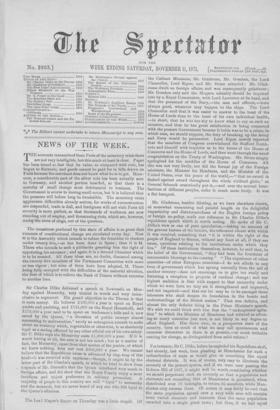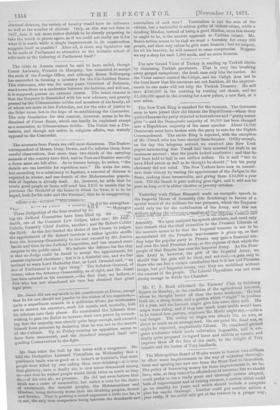Foriustance, Sir C. Dilke, before he exploded his Republican shell,
had already, last week, been pleading at Manchester for such a redistribution of seats as would give us something like equal electoral districts. It was, of course, very easy to illustrate the anomaly of the present system, and if we were now passing the Reform Bill of 1867, it might well be worth considering whether we should perpetuate such an anomaly as that a population and electorate not exceeding that of Manchester is permitted, when distributed over 70 boroughs, to return 85 members, while Man- chester only returns three. Of course it may fairly be said that the same population spread over a very wide area will contain more varied elements and interests than the same population crowded into a single great town ; but then, if we had equal
electoral districts, the variety of locality would have its influence as well as the number of electors. Only, as this was not done in 1867, does it not seem rather childish to be already proposing to take the watch to pieces again, as if we could not really use it for what it is worth while a single improvement in its construction suggests itself as possible ? After all, is there any legislative use to be made of Parliament so attractive to the irritable school of reformers as the tinkering of Parliament itself ?



































 Previous page
Previous page